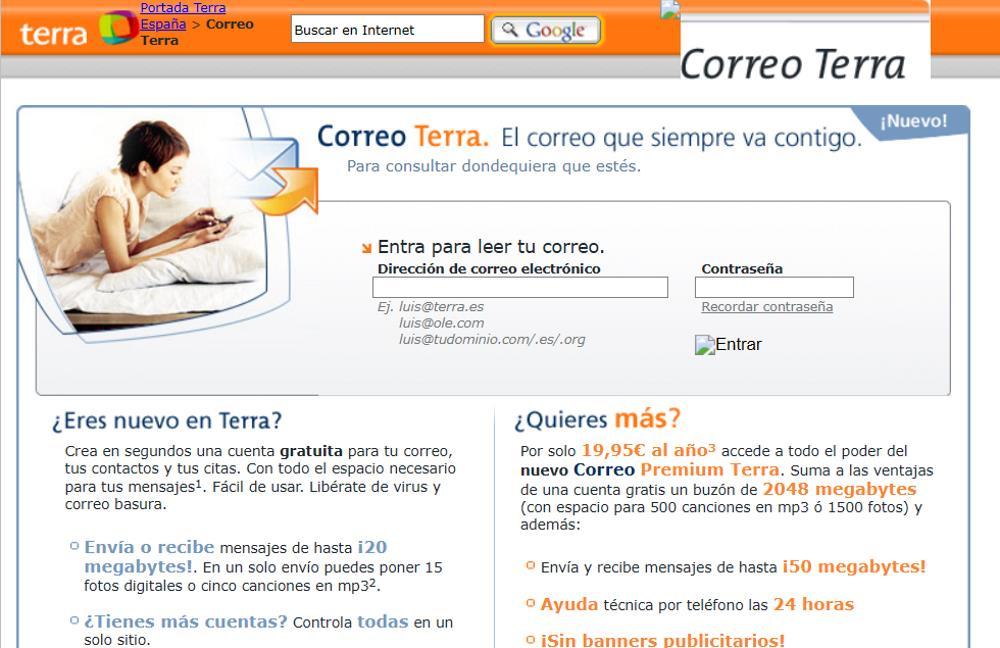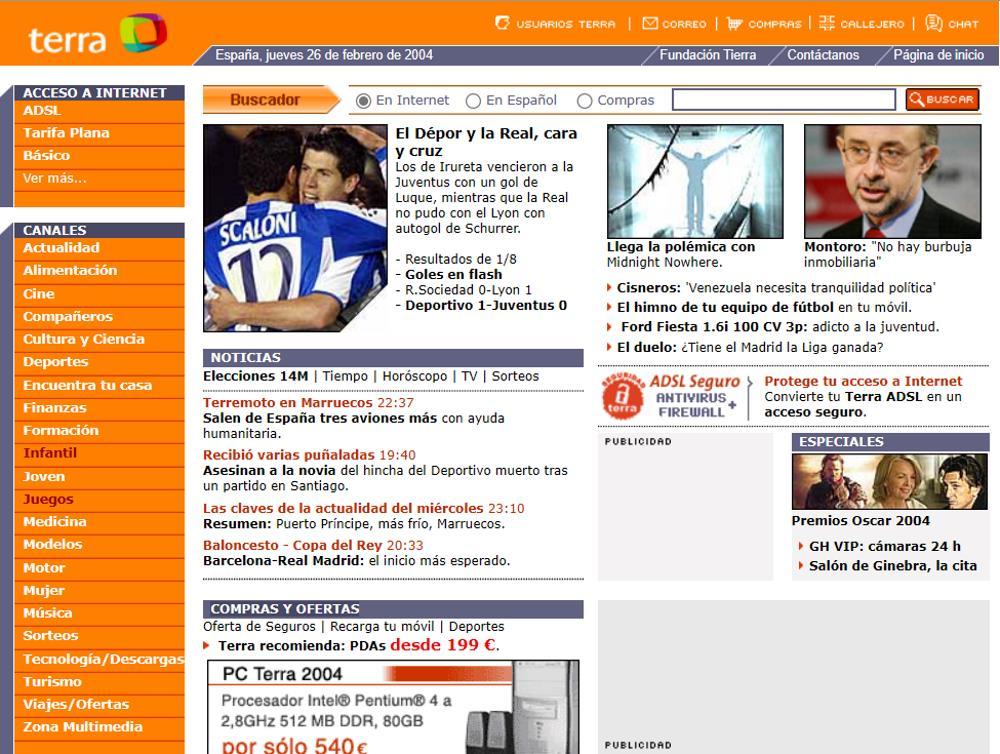If we talk about Internet search engines, the first one that comes to mind is Google, however, it was not the first of all, and, although it came to the market later than others, it managed to unseat all those that were available at the time, managing to maintain its leadership position for more than 20 years. If we talk about Spanish or Spanish-speaking search engines, we have to talk about Terra.
Terra was an Internet search engine that also functioned as an access portal, since it also offered Internet services.
Birth of the Terra Seeker
Terra was launched in 1997 by Telefónica, one of the largest telecommunications companies at that time and with a presence, in addition to Spain, throughout Latin America. At that time, Telefónica offered Internet services through Teleline, a company that served as a platform for Internet access and searches and that the company wanted to turn into a gateway for customers who contracted its platform and, in general, for everyone.
However, he opted for the fastest way by buying Olé and taking advantage of all the infrastructure he already had in place so as not to start from scratch. Terra had a presence since its inception in other countries such as the United States, Colombia, Argentina, Peru, Chile, Nicaragua and Honduras, among others, which is why it quickly became the most visited Spanish-speaking portal on the Internet.
At that time, Terra is the only search engine / portal that offered content only in Spanish and satisfied an urgent need that at that time was not covered by any other company. In addition, it also offered completely free email accounts.

Telefónica’s commitment was so strong with the launch of Terra that it went public that same year. At that time, we were in what was later called the dotcom bubble, so the titles experienced a spectacular growth of more than 200% at the time of its exit.
At the beginning of the year 2000, with less than a year in the market, Terra was considered one of the 10 companies with the highest market capitalization of the time, which encouraged the company to buy Lycos, the third most visited portal in the United States. But, the dotcom bubble burst and Terra went down with the whole team, although more on that later.
At the end of the 90s, there were many companies that, taking advantage of the internet, created all kinds of related companies, companies that suffered a continuous revaluation until 2021, considerably inflating their value reaching absurd limits since they were considered the new economy, a movement that It was considered the dotcom bubble, a term that has subsequently also been applied to subsequent crises, such as real estate.
dotcom crash
As that bubble was deflating, the price of all the companies that are listed on the stock market and that were linked to the Internet, went down little by little, but continuously. Terra’s shares, a year before the dotcom burst, reached a value close to 160 euros. In 2005, that value was less than 3 euros. When Terra went public, it did so at a price per share of 11.81 euros.

The bursting of the bubble of the companies that were born from the hand of the Internet was added to the arrival of new competitors in the form of portals and social networks, portals and social networks that offered more and better information than the platform that Telefónica had founded and according to The years went by, Terra went into the background. In 2004, he sold Lycos, a company for 100 million dollars, after having paid more than 12,000 million dollars for it 4 years earlier.
Terra continued to operate until 2017, the year in which Telefónica ended its stage after 18 years, disappearing from all the countries where it was present, except in Brazil, where it continues to operate today. In 2020, Telefónica decided to relaunch Terra, although only in the American continent, adding to Brazil, the domains of Mexico, Chile, Colombia and the United States.
Alternatives to Terra
Internet access portals stopped making sense and a clear example is found in Terra, a company that, with the arrival of Google and social networks, ceased to be an option, being Yahoo! another clear example. If we want to find information about the most liked, we just have to use Google with the appropriate search terms or visit the digital versions of the main media.












